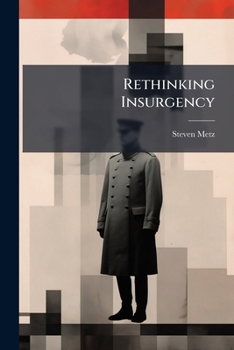Rethinking Insurgency
The U.S. military and national security community lost interest in insurgency after the end of the Cold War when other defense issues such as multinational peacekeeping and transformation seemed more pressing. With the onset of the Global War on Terror in 2001 and the ensuing involvement of the U.S. military in counterinsurgency support in Iraq and Afghanistan, insurgency experienced renewed concern in both the defense and intelligence communities. The author argues that while exceptionally important, this relearning process focused on Cold War era nationalistic insurgencies rather than the complex conflicts which characterized the post-Cold War security environment. To be successful at counterinsurgency, he contends, the U.S. military and defense community must rethink insurgency, which has profound implications for American strategy and military doctrine.
This work has been selected by scholars as being culturally important, and is part of the knowledge base of civilization as we know it. This work was reproduced from the original artifact, and remains as true to the original work as possible. Therefore, you will see the original copyright references, library stamps (as most of these works have been housed in our most important libraries around the world), and other notations in the work.
This work is in the public domain in the United States of America, and possibly other nations. Within the United States, you may freely copy and distribute this work, as no entity (individual or corporate) has a copyright on the body of the work.
As a reproduction of a historical artifact, this work may contain missing or blurred pages, poor pictures, errant marks, etc. Scholars believe, and we concur, that this work is important enough to be preserved, reproduced, and made generally available to the public. We appreciate your support of the preservation process, and thank you for being an important part of keeping this knowledge alive and relevant.





